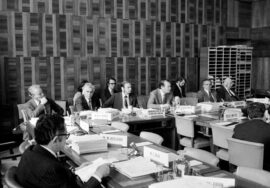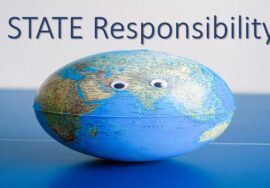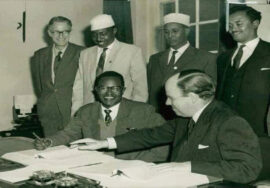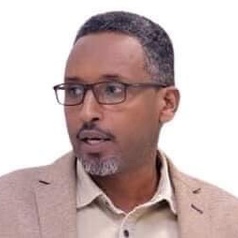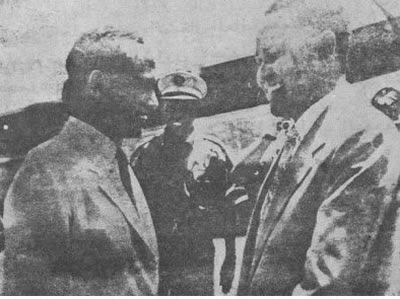
The illegal union of Somaliland and Somalia consequence
The Somaliland withdrawal of the union of 1960s and State Recognition
Assented to by the Council of Ministers Mogadiscio, 5th July 1960
Mohamed Ibrahim Egal
Ahmed Haji Dualeh
Ali Garad Jama
Haji Ibrahim Nur
THE UNION OF SOMALILAND AND SOMALIA LAW
Preamble:
WHEREAS the State of Somaliland achieved independence and ceased to be under British protection or within the jurisdiction and sovereignty of Her Britannic Majesty on the 26th day of June, 1960 (being Muharram 1st 1379):
AND WHEREAS the State of Somalia achieved its independence and ceased to have the status of a Trust Territory of the United Nations Organization administered by the Republic of Italy on the 1st of July, 1960
AND WHEREAS it is the will of the peoples of Somaliland and Somalia that their States shall united shall forever be united in the Somali Republic:
NOW, we the signatories hereof being the duly authorized representatives of the peoples of Somaliland and Somalia and having vested in us the power to make and enter into this Law on behalf of our respective States and peoples do hereby solemnly and in the name of God the compassionate and Merciful agree as follows:-
Union:
1. (a) The State of Somaliland and the State of Somalia do hereby unite and shall forever remain united in a new, independent, democratic, unitary republic the name whereof shall the SOMALI REPUBLIC.
(b) The Capital of the Somali Republic shall be Mogadiscio.
Conditions of Union:
2. Subject to the express provisions of this Law the Union hereby constituted shall be upon the following conditions: –
(1) That the component administrative units of the Government of the Somali Republic until more suitable administrative arrangements are made, shall be, firstly, the region comprising the territories contained in the boundaries of the presently existing State of Somaliland (hereafter referred to as “the Northern Region”) and, secondly, those presently existing territories which comprise the six Regions of Mijertain, Mudugh, Hiran, Banadir, Upper Juba and Lower Juba all in Somalia (hereafter collectively referred to as “the second named Regions”).
(2) That the existing laws presently in force in the Northern Region and in the second named Regions respectively shall remain in full force and effect within the respective territories where the same presently apply and shall not have force or effect beyond those respective territories where the same presently apply.
(3) That all persons now serving the Somaliland Government in the Northern Region and the Government of Somalia in the second named Regions respectively shall continue to serve the Government of the Somali Republic upon terms not less favourable than those at present applicable to them.
(4) That the Courts as presently constituted in the aforesaid Northern Region and the aforesaid second named Regions shall continue to exercise within their respective territories the jurisdiction which is conferred upon them by presently existing law and shall be Courts of the Somali Republic.
(5) That all rights and obligations vested or accruing, whether public or private (including any status of legal personality acquired under law by corporate or non-corporate bodies) shall continue to subsist in accordance with subsection (2) hereof be recognized and enforced by the Courts of the Somali Republic, referred to in subsection (4) hereof and by the Government of the Somali Republic.
(6) That in the Somali Republic the National languages of the Republic shall be as to the spoken tongue Somali and as to the written language Arabic, English and Italian, which shall have equal status.
Citizenship:
3. (1) All persons who upon the date of this Union possess the citizenship of Somaliland and Somalia respectively shall by this Union now become citizens of the Somali Republic.
(2) All persons who hereafter would, but for this Union, have become citizens of Somaliland or Somalia respectively under the law of either of the two uniting States as presently subsisting, shall hereafter become citizens of the Somali Republic.
Head of State
4. The Head of with State of the Somali Republic shall be the PRESIDENT of the Republic chosen in accordance with the provisions of the Constitution referred to in section 7 hereof.
Executive Authority.
5. Executive Authority of the Somali Republic shall be vested in the COUNCIL OF MINISTERS appointed in accordance with the provisions of the Constitution referred to in section 7 hereof and shall be exercised as therein provided.
Legislative Power.
6. The Legislative power of the Somali Republic shall be vested in the NATIONAL ASSEMBLY constituted in accordance with the provisions of the Constitution referred to in section 7 hereof and shall be exercised as therein provided.
The Constitution.
7. The CONSTITUTION OF THE SOMALI REPUBLIC shall be the Constitution of the State of Somalia with such adaptations as may be necessary to bring in into conformity with this Law but notwithstanding the provisions thereof relating to amendment, no amendment of that Constitution shall derogate from the conditions of Union set forth in section 2 hereof unless made in accordance with the procedure and provisions set forth in section 10 hereof.
The existing Executive and Legislative Organs.
8. (1) Upon this Law being made the presently subsisting Legislative Assembly of Somaliland and Somalia respectively shall cease as such to subsist: but the existing elected members of the said Legislative Assemblies shall constitute the first National Assembly of the Somali Republic. Immediately upon the National Assembly of the Somali Republic being constituted under these provisions, the members thereof shall each before the person presiding over the National Assembly make oath of allegiance to the Somali Republic.
(2) The existing President or Vice President of the Legislative Assembly of Somalia shall preside over the National Assembly of the Somali Republic for the purpose of taking the oaths of allegiance in accordance with subsection (1) hereof and for the purpose of electing the first President of the National Assembly only.
(3) The members of the Council of Ministers after being appointed in accordance with the Constitution shall each make an oath of allegiance to the Somali Republic before the President of the National Assembly.
Freedom of movement and trade
9. (1) Notwithstanding anything in section 2 hereof, the citizens of the Somali Republic shall have the right freely to move for lawful purposes throughout the territory of the Republic subject to the provisions of any law relating to public order or human or animal health.
(2) Notwithstanding anything in section 2 hereof there shall be no customs, exercise or other tax imposed upon the movement of goods (including animals) between any parts of the territory of the Somali Republic provided such goods originate from the Region from which they are proceeding.
(3) Until unification of customs tariffs is achieved goods imported from foreign countries and moving from the Northern Region to the second name Regions and vice versa shall be subject to the customs laws at present in force in the Northern Region and the second named Regions.
Special Commission for Uniformity.
10. (1) There shall be established a Special Commission the members of which shall be persons who were immediately prior to this L\w either members of the Legislative Assembly of Somalia or members of the Legislative Assembly of Somaliland together with a Chairman being a member of the National Assembly appointed by the members of the Commission.
(2) The members of the Special Commission (other than the Chairman) shall be appointed by the President of the Somali Republic acting on the advice of the Council of Ministers and shall consist of an equal number of former members of the Legislative Assembly of Somali and former members of the Legislative Assembly of Somaliland.
(3) The Special Commission shall examine into and make recommendations (which in the event of the Commission not being unanimous shall be the recommendations of a majority of its members to which a minority report shall be attached) as to the provisions to be made from time to time by law for the purpose of establishing uniformity between the laws, institutions, public service and social services presently existing in the Regions referred to in section 2 hereof.
(4) The Special Commission shall for the aforesaid purpose be empowered to establish sub-commissions or committees, the members whereof may include other persons and to engage or call for assistance from any person by way of advice or otherwise.
(5) The Special Commission shall from time to time report to the Council of Ministers as to its recommendations under subsection (3) of this section and the Council of Ministers shall thereupon with all reasonable dispatch lay such report before the National Assembly together with the proposed legislation to be made to give effect thereto.
(6) The National Assembly shall thereupon decide by majority of the members thereof present and voting upon such proposed legislation whether the same shall be enacted.
(7) Upon the National Assembly so deciding then the President shall assent to such legislation and upon the same coming into operation any condition set forth in section 2 hereof shall so far as it is inconsistent with such legislation be abrogated.
(8) The Special Commission may with the approval of the Council of Ministers make rules regulating its procedure and providing for the duration of the appointments of its members, the remuneration of any person whose participation or assistance is called for under subsection (3) here of, the cilling of vacancies in membership and all other matters as may be required for the performance of the function conferred upon the Special Commission by this section:
Provided that if the Special Commission fails to make rules under this subsection in accordance with a request made to it by the Council of Ministers, the Council of Ministers may make the said rules.
(9) Any rules made under subsection (8) may be added to, amended or revoked in the same manner.
Succession to rights and liabilities:
11. (1) Any property (including any rights arising from contract or otherwise) that is immediately before this Law vested in the Government of Somaliland or in the State of Somalia shall upon this Law being made vest in the Somali Republic or in such person or authority on behalf of the Somali Repubic as the Council of Ministers may direct.
(2) Any liability or obligation (whether arising from contract or otherwise) incurred by the Government of Somaliland or by the State of Somalia and subsisting immediately before this Law shall upon this Law being made be a liability or obligation of the Somali Republic or of such person or authority on behalf of the Somali Republic as the Council of Ministers may direct.
(3) For the purposes of the preceding subsections, any property which immediately before the making of this Law was vested in or any liability or obligation which at that time had been incurred by, any person or authority on behalf of the Government of Somaliland or the State of Somalia shall be deemed to be property vested in or a liability or obligation incurred by the respective Government or State.
(4) Without derogation from the foregoing provisions of this section the right and obligations arising from agreements entered into between the Government of Somaliland and the Government of the United Kingdom of Great Britain and Northern Ireland and between the Government of Somalia and the Government of Italy and other States and International organisations which are set out in the Schedule to this Law shall be binding upon the Somali Republic.
Transitional:
12. (1) For the time being the provision subsisting immediately before the making of this Law for the expenditure of public moneys of the Somali Republic hereby constituted within and upon the Northern Region and second named Regions shall as far as practicable continue to the intent that those moneys which have been authorized to be expended within and upon the respective Northern Region and second named Regions shall continue to be expended upon the public service and upon the development and welfare and in the service of the said Northern Region and second named Regions and the inhabitants thereof respectively.
(2) For the time being the presently subsisting provision for the expenditure of public moneys (including such moneys as may be provided by way of assistance from foreign States) upon the development and welfare of the aforesaid Northern Region and second named Regions and the inhabitants thereof respectively shall as far as practicable continue to the intent that those schemes of development and welfare which are now current shall be completed and that those schemes of development and welfare which have been planned shall be proceeded with within the respective Northern Region and second named Regions hereinbefore referred to and for the benefit of their respective inhabitants.
(3) The Supreme Court of the Somali Republic shall have appellate jurisdiction in relation to decisions of the Courts now constituted and which will continue to subsist in the aforesaid Northern Region.
———–
SCHEDULE
1. The Agreement between the and Government of Somaliland and the Government of United Kingdom of Great Britain and Northern Ireland regarding interim arrangements in respect of the Somaliland Scouts.
2. The Interim Agreement between the Government of Somaliland and the Government of the United Kingdom of Great Britain and Northern Ireland for a United Kingdom Aid Mission.
3. The Public Officers Agreement between the Government of Somaliland and the Government of United Kingdom of Great Britain and Northern Ireland.
———–
This Bill has been passed by the Legislative Assembly on 27th June, 1960.
AHMED MOHAMED ADAM
Clerk of the Legislative Assembly
I hereby certify that at the third reading of this Bill, (which has now been passed as the Somaliland and Somali Union Law) the votes of not less than two third of the members of the Assembly were cast in favour thereof.
W. F. STUBBS,
Speaker.
The International Arbitration between Somaliland versus Somalia
INTRODUCTION
I. THE FOUNDATIONS OF STATE INDEPENDENCE: ISSUES OF STATEHOOD, SELF-DETERMINATION, AND TERRITORIAL INTEGRITY
A. TWO COMPETING THEORIES OF STATEHOOD
The Montevideo Convention on the Rights and Duties of States of 1933 is often cited as a primary international legal instrument defining the concept of statehood.
To be a state, a territory must have
a) a permanent population;
b) a defined territory;
c) government; and
d) capacity to enter into relations with the other states.
The Montevideo Convention best exemplifies the declaratory theory of statehood. Two conditions are required by the declarative theory: the prospective state must meet four criteria and declare its sovereignty. Therefore, statehood is independent of recognition from other countries. The UN’s commitment to democracy, equal rights, and self-determination has informed the development of this theory since the Montevideo Convention. Some argue, however, that states practically consider the matter of recognition by other states somewhat important.
The real-world significance of recognitions has given rise to a second theory: the constitutive theory of statehood. According to this theory, a state achieves legal personality through recognition by other nations. The public acknowledgment of a state’s existence by a nation constitutes recognition. Although disregarded for decades after WWII, this theory has recently seen a modest revival. However, critics contend this method creates uncertainty, particularly when state recognition varies internationally. They claim this process hinders self-determination by weighing the recognising nation’s opinion more heavily than the rights of the state itself.
B. THE DEVELOPMENT OF LEGAL STANDARDS RELATED TO SELF- DETERMINATION
President Woodrow Wilson’s 1918 address to Congress laid the groundwork for the modern idea of self-determination. Wilson announced fourteen points for peace, designed to avoid a repeat of WWI, in his speech. In the fifth point, it was stated that when one is deciding… . . When considering issues of sovereignty, the needs of the affected people and the legitimate claims of the government in question must be given equal consideration. President Wilson, in another context, maintained that a nation’s people are entitled to decide their own government.
Although almost a century has passed since President Wilson’s speech, and the right to self-determination is enshrined in many international agreements, there’s still no universally agreed-upon definition of its scope. This lack of clarity is evident in numerous cases, including Indonesia, Vietnam, Algeria, Kosovo, and South Ossetia. Even academic experts are divided on the meaning of self-determination’s declarative and constitutive theories; some advocate for broad application in resolving international legal disputes, while others deem them merely analytical tools.
Although the right to self-determination is interpreted differently, three international legal principles have developed regarding emerging state sovereignty. The dominant principle establishes that colonised regions possess the right to self-governance, free from colonial powers’ interference in determining their own future. The UN’s post-WWII influence has diminished colonialism, thus reducing the relevance of this self-determination approach today. Second, globally, the right to internal self-determination is acknowledged—meaning that unhappy groups within a nation are entitled to employ existing political systems to achieve self-determination. Lastly, international norms accept external self-determination, meaning the right to secede. Secession against a parent state’s wishes is rarely accepted. As an illustration, the UN rejects membership applications from states that have seceded illegally.
C. THOUGH THE LAW OF SECESSION
The legal status of secession is unclear, mirroring the vagueness of self-determination laws. A century of case law provides no clear standard to fully resolve this uncertainty. Scholars debate whether international law, statehood, and self-determination principles apply to secession. The majority contend that secession is primarily a matter of domestic, not international, law. Secession and independence achieved through domestic law is called “bilateral” secession. Bilateral secession practically requires two things: a clear democratic mandate from secessionists and subsequent negotiations with the parent state. The parent country yields to democratic pressure, granting independence and thereby justifying the secession.
When the parent state is unwilling to negotiate, however, the outcome is less clear. Certain historical cases indicate that a second “unilateral” or “remedial” method of secession is justified. The Aaland Islands Case in 1921 articulated the following requirements for justifiable secession when the parent state opposes it:
1) those wishing to secede were “a people”;
2) they were subject to serious violations of human rights at the hands of the parent state; and 3) no other remedies were available to them.
In 1998, the Canadian Supreme Court used a comparable standard when deciding on Quebec’s secession. Most commentators would likely agree that a state presenting evidence of these factors has grounds for justifiable secession.
In the end, secessionists might try to secede by declaring independence from their parent state. This happens without the parent state’s approval or justification under the aforementioned unilateral standard. It’s extremely difficult, perhaps impossible, to justify such a de facto secession. Only if other nations recognise their independence can de facto secession be justified, some claim. As a commentator pointed out, formulating a satisfactory test for a seceding entity’s statehood before its complete success is exceptionally problematic. Statehood claims can’t be assessed until secessionists achieve separation.
E. POLITICAL CONSIDERATIONS OBSCURE THE LEGAL PRINCIPLES SURROUNDING SECESSION
Real-world application of secession legal theories is seldom as clear-cut as the theories themselves. Beyond the legal ramifications, political considerations often come into play. Because the legal principles of secession are often unclear, and there’s no governing international legal body, political motivations are often more important than legal norms in whether states recognise new countries.
Political pressure on the legal right to self-determination creates more obstacles, and potentially arbitrary outcomes, for less powerful nations seeking to exercise it. Secession requires not only legal compliance but also the backing of a major power for its legitimacy, evidence suggests. Critics argue the final step relies on the powerful nation’s will and motives, not the secessionists’ legal right to self-determination. A commentator claims this practice somewhat undermines the sovereignty of less powerful nations compared to more powerful ones.
E. DEFERENCE TO TERRITORIAL INTEGRITY
Although international law highly values self-determination, documents like the UN Charter (Article 2) show territorial integrity is equally important. While some advocate for easing territorial integrity protections, most support existing international laws.
Uti possidetis juris, the principle that borders at independence shouldn’t change, relates to territorial integrity and the right to self-determination. The 1991 Badinter Commission, tasked with resolving Balkan issues, applied this doctrine while overseeing the breakup of Yugoslavia. The Commission thus concluded uti possidetis juris had a wider scope, applying to self-determination situations, including the Yugoslav case, outside of decolonisation.
F. THE SEARCH FOR AN OBJECTIVE TEST OF STATE FAILURE
The concept of “state failure” has many interpretations, largely stemming from traditional definitions of statehood. According to most commentators, states fail when their governments can no longer govern. Losing legitimacy is also critical to defining a failed state. Some commentators also stressed the inability of the failed state to “remain a member of the international community”.
Various tests for objectively defining state “failure” have arisen from the study of failed states. Without security, a country cannot achieve political independence. The strong leadership from its legislative and executive branches, which result from political independence, aids a nation’s stability. The independence of the judiciary and the rule of law are important factors in assessing state failure. One test notably uses a time factor—state failure is only determined after a significant period of power void.
International Arbitration between Somaliland versus Somalia
B. THE SCOPE OF SOMALILAND’S RIGHT TO EXERCISE SELF- DETERMINATION
Lawyers of Somaliland Recognition:
Those pushing for Somaliland’s independence broadly define the right to self-determination, arguing Somaliland should be a country independent of Somalia. Somaliland’s initial claim to justification rests on its history as a British protectorate. The legal right to self-determination is inherent to a colony, regardless of its coloniser. Somaliland’s claim to self-determination, based on its British colonial past and 1960 independence.
When Somaliland merged with Somalia in 1960 to form “Greater Somalia,” it led to several dilemmas, including two regions not receiving recognition but two countries achieving independence individually before uniting. Secondly, the union’s decision lacked a national referendum or popular vote. Proponents argue the Somaliland-Somalia unification is invalid due to the lack of a national vote. Somaliland’s independence would be a reality without a union, making secession discussions irrelevant. Somaliland politicians haven’t effectively promoted Somaliland’s recognition internationally.
Somalia Lawyers Arguments: Several problems cast doubt on this argument. The fact that Somaliland and Somalia formally agreed to unite in 1960 is overlooked. These leaders’ actions aligned with the popular will. Instead, their actions stemmed from a wave of Somali nationalism and anti-colonial sentiment across Somaliland and Somalia. While the 1960 unification may have lacked popular support, its subsequent decade of relative stability and democratic vibrancy as a unified Somalia shouldn’t be ignored.
Somaliland lawyers’ deductive argument: Somalilanders largely refused to accept the new constitution and union terms when Somaliland and Somalia merged in 1960. Somaliland declared independence in 1960, but the subsequent union proved unbalanced, leaving Somaliland feeling politically and economically sidelined. Somalilanders rejected the 1961 constitution via referendum, sparking coup attempts to regain independence.
Lawyers of Somaliland argument: A coup d’état in December 1961, organised by Somaliland military officers from UK military Sandhurst and Egyptian academies, failed to restore the state’s independence of 26th June 1960. In the unification period, the Somaliland Scouts (approx. 2,000 strong), the Somaliland army was also highly disciplined, experienced and well-trained since both world war fought with UK allies internationally, and they were also instrumental in liberating Somaliland from the fascist Italians in WWII. Somaliland possessed its own police force.
Somalia lawyers’ argument against Somaliland: The Siad Barre regime’s two decades were anything but peaceful. This brutal regime oppressed the whole country, both the north and the south. The country’s past oppression is irrelevant to its unification after decolonisation. Somaliland’s claim to self-determination is weak, given the north and south’s voluntary unification after independence.
Lawyers of Somaliland Recognition argument: The successful military dictatorship in Somalia on 21 October 1969, rendered the union contract null and void:
– The illegitimate removal of an elected government
– Renaming the union from Somali Republic (representing Greater Somalia of 5 regions) to Somalia (reflecting Italian fascism ideology).
-The Somalia military committed genocide in 1988 and conducted ethnic cleansing against Isaaq tribes in various Somaliland regions from 1982 to 1988..
Somalia argument still holding back Somaliland recognition: Somaliland could also pursue self-determination internally, using Somalia’s existing political processes to achieve its policy objectives = Without Somaliland recognition.
Lawyers Narrative supporting Somalia case against Somaliland recognition: Somaliland’s quest for internal self-determination is however, hampered by the situation in Somalia. The absence of a functioning government in a failed state severely limits or eliminates the ability of its regions to petition for self-determination. Because of the persistent conflict and political instability in Somalia following the 1991 civil war, Somaliland has remained outside the scope of the withdrawal’s application to the union of Somalia.
Lawyers of Somaliland recognition: A majority of academics dismissed the dilemma concerning Somaliland’s recognition:
- Somaliland’s proposal for internal self-determination does not involve becoming an independent state but rather aligning with Somalia’s Federal Government, which contradicts historical and international legal norms: Somaliland is not seeking secession or recognition as a new country. Contrary to the idea of separation from Somalia, Somaliland seeks the restoration of its independence as of 26th June 1960.
- This proposal advocates for Somalia to acquire Somaliland by any means necessary, be it through force or in the future. The future of the Horn of Africa will be disastrous because neither Somaliland’s people nor its politicians will accept that.
- The Somali government, along with its allies, claims Somalia is a failed state and should only grant Somaliland internal self-determination without international recognition; however, Somaliland demands full international recognition before engaging with Somalia.
- To prevent Somaliland’s recognition, Somalia claims that such recognition would cause the country to break into multiple independent regions, thus using its internal divisions as leverage against international support for Somaliland.
C. SOMALILAND ROAD A LEGAL BASIS FOR RECOGNITION
1. Bilateral Somaliland recognition: Somaliland-Somalia talks
The issue of Somaliland’s recognition became problematic on 20 June 2012:
- Somaliland’s pre-Somalia talks stance wasn’t secessionist; rather, it was about reclaiming its 1960 independence.
- 18th May 1991, was Somaliland’s Liberation Day, the day they regained their independence.
- To foster cooperation with Somalia, Somaliland accepted, or perhaps was compelled to accept, roughly $500 million yearly in international development aid as part of bilateral negotiations with Somalia concerning secession.
1. Neither Somaliland is a secessionist nor is Somalia its parent state. Merging independent countries doesn’t automatically create a single “parent state”. This merger creates a new state, which will have its own unique sovereignty and identity. The concept of a parent state is more relevant in situations of succession, where one state is replaced by another, potentially with the new state inheriting aspects of the old state.
• Somaliland’s short-term sale for development aid stemmed from the two requirements of bilateral secession talks with Somalia. The first step taken was to declare Somalia as the parent state, ensuring that Somali domestic laws will be enforced in Somaliland based on international laws by either adopting parliamentary legislation or permanently rejecting the claimed secession. Secondly, Somaliland must participate in fair negotiations with Somalia’s government regarding the secession. Somaliland politicians accepted aid money but disregarded in 2012 their legal standing, unilaterally reinstating their independence declared on 26th June 1960.
• It’s unlikely the Somali government and its parliament would ever accept laws acknowledging Somaliland’s breakaway, given Somaliland’s perspective that it was a country that joined Somalia in the 1960s, not a secessionist movement. Somalia’s past, present, and future are riddled with insurmountable obstacles for both sides; its lawlessness, corruption, and violence make a favorable outcome for Somaliland nearly impossible. The case is closed!
2. Unilateral Reclaiming Somaliland independence
Somaliland’s unilateral claim to 1960 independence hinges on three factors: Somalilanders’ status as a distinct people, Somalia’s human rights abuses against them, and the absence of better alternatives. Such a claim is overwhelmingly supported by evidence. The economic impact of ethnic cleansing from the 1960s onwards, leading to cultural repercussions. In 1988, the Isaaq population endured genocide as the Somalia government bombed major cities in Somaliland using aerial bombs and artillery, with video evidence confirming the indiscriminate attacks. Landmines were also placed across 30% of Somaliland’s land by the Somalia military. The 1988-1990 exodus of 1.2 million Somalilanders to Ethiopia caused a staggering loss of life: 250,000 direct deaths, 75,000 from disease and malnutrition, plus additional fatalities from landmines on the borders with Ethiopia and Djibouti. The so-called union caused Somaliland’s population to shrink by 500,000; this was significant given their size relative to other groups like the Hawiye, Darod, Dir, and Rahanweyn in the Horn of Africa.
The second point is human rights. Somalia’s government inflicted atrocities upon the Isaaq people. At the height of the Siad Barre regime’s abuses in the 1980s, the Isaaq people suffered widespread land and city destruction, murder, and rape.
The extent of human rights abuses against the Isaaq is sufficient to argue for a legitimate redrawing of the 1960s union, which is distinct from secession. Somalia was the first country in the Horn of Africa to be associated with the term “ethnic cleansing” due to the situation in Somaliland. The historical events of Somaliland and Somalia’s independence in June and July 1960 led to the justification of reclaiming independence in May 1991 due to human rights violations against the Isaaq people.
Somaliland should have considered these options before the 2012 talks with Somalia began. Given Somaliland’s stability, it’s hard to picture how Somaliland’s recognition in 1991 might have accelerated Horn of Africa peace..
3. De Facto Secession
It could be argued that Somaliland’s de facto independence began in 1991. Somaliland’s pursuit of de facto statehood is misguided and legally insufficient. Somaliland’s claim to legal independence strengthens if foreign nations recognise it, although some, like the UAE, have already granted de facto recognition. What would happen if other countries acknowledged Somaliland’s independence? Some argue that widespread international recognition of Somaliland could legitimise its de jure independence.
Somaliland’s success hinges on international recognition, particularly regarding the strategic Berbera Port and its location on the Gulf of Aden, which is key to attracting support from the USA, Europe, and Asia. The Gulf of Aden serves as a crucial global trade route, especially for oil travelling from the Persian Gulf towards the Suez Canal. Global trade, including a substantial amount of container shipping, relies on it for approximately 10–15% of its volume. Approximately 21,000 ships traverse the gulf yearly. When considering Somaliland’s recognition, foreign governments focus on their own interests, not the legality of Somaliland’s claim. Risk assessment in recognition depends on the recognising state’s potential gains, not the applicant’s benefits.
Somaliland’s recognition is almost certain, appearing highly likely. The international community requires the safety and security of the Gulf of Aden, while Somalia remains a failed state for 35 years. The Republic of Somaliland would become the best partner for the international community if the USA, EU, and UK invested in its coast guard’s training and resources over the next two decades.
Somaliland, since the mid-1990s, has enjoyed a lively political scene, a representative government, and sufficient security and stability for some economic progress. Even Hargeisa, the largest city in Somaliland, recently saw its initial traffic light installation. Somaliland’s self-governance stands in contrast to Somalia’s failure to do so. Under the proposed test, Somaliland’s recognition is justifiable as it effectively governs, unlike Somalia which has failed for so long it created a power vacuum. Therefore, Somaliland’s independence wouldn’t violate Somalia’s sovereignty claim, as the 1960 union was illegitimate, uniting two pre-existing countries that later separated in the 1990s.
Applying this test to Somaliland within Somalia is the outstanding question. Objectively speaking, Somalia is undeniably a failed state. Some analysts ranked as one of the world’s biggest failures Somalia. The government is unable to perform even the most basic state functions due to the civil war’s violence. Somalia’s civil war, ongoing since 1991 without resolution and with little governmental progress, strongly suggests a prolonged absence of functional governance. On the other hand, Somaliland made progress during the same period.
III. THE INTERNATIONAL LAW WITHIN FAILED STATES
Following 34 years of Somaliland’s pursuit of international recognition, Somalia remains a failed state.
This casts doubt on the future of Somaliland’s recognition. It’s effectively stuck in a political quagmire. Somaliland will have no formal interactions with foreign governments. Somalilanders lack international travel freedoms and a recognised nation; they remain tied to Somalia’s civil unrest. Somalia’s ineffective government is directly responsible for the possible outcome. Somaliland clans resolved their disputes around the mid-1990s. Critically, Somalilanders bear no responsibility for Somalia’s current situation; two generations have grown up under the Somaliland flag, unfamiliar with Somalia.


